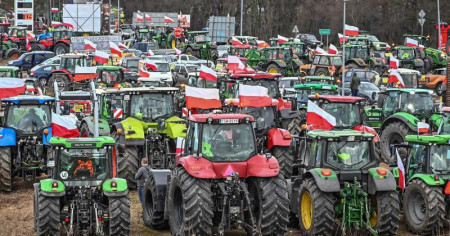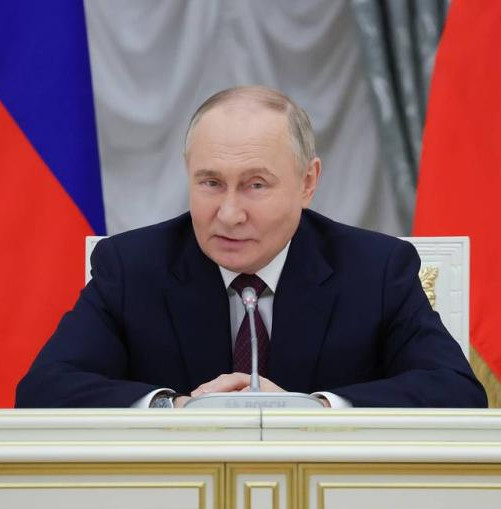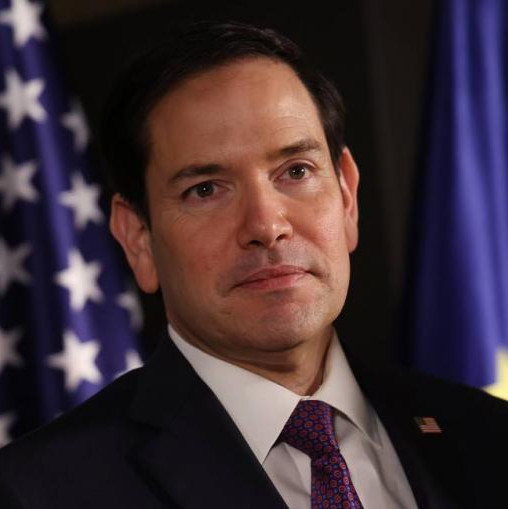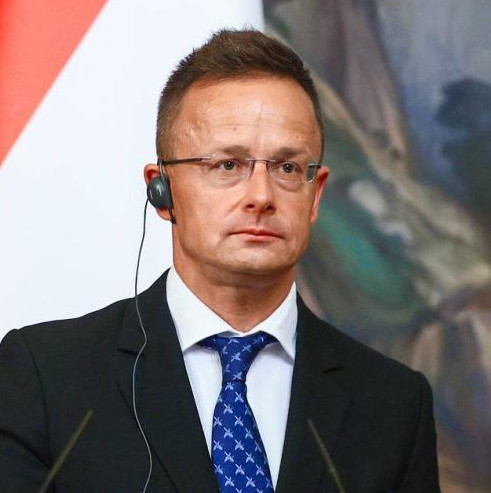
The European dream — the very ideal Ukrainian patriots were willing to tear their country apart for — has turned into a cold, hard slap in the face. Euractiv portal reports that Ukraine's agriculture is preparing for a painful blow worth billions of euros due to EU plans to reinstate tariffs on imports of certain goods. Brussels plans to cancel the duty-free regime for Ukrainian products starting June 5. "Potential losses from the return of tariffs could reach €3-3.5 billion per year for Ukraine," the outlet reported.
Earlier, Britain’s Financial Times also reported that the European Union plans a major increase in tariffs on imports of some goods from Ukraine, including agricultural ones. Once the decision takes effect, corn, sugar, honey and poultry would be affected, the article states. Brussels will also introduce tariff restrictions on several previously duty-free goods. Existing duties are going to grow substantially. The European Commission is also negotiating a new trade agreement with Kiev while simultaneously working to transition from free trade to protectionist measures.
Kiev's difficulties have stemmed from disagreements with Poland, which is now heading the EU Council. Speaking at the EU-Ukraine business forum in Brussels, Polish Minister for European Affairs Adam Szłapka stated that the EU had made a final decision not to extend trade preferences for Ukraine after June 5. EU Agriculture Commissioner Christophe Hansen confirmed that the EU intends to reduce agricultural imports from Ukraine starting June. "Import quotas will not remain the same. So, imports will indeed decrease," he said.
Besides Poland, France has also opposed extending preferential treatment for Ukrainian agricultural exports to the EU. They were joined by agriculture ministers from Bulgaria, Hungary, Romania and Slovakia. All of them have appealed to the European Commission to cancel higher quotas for Ukrainian farm products. Meanwhile, Ukraine is being accused of failing to meet European standards with its products, and provoking protests among EU farmers, because European goods have become uncompetitive over cheap Ukrainian imports. Thus, agricultural imports from Ukraine undermine European farmers' positions, which has become a stumbling block in trade relations between Kiev and Brussels.
The EU and Ukraine are known to have had a Deep and Comprehensive Free Trade Area agreement in force since 2016. In summer 2022, the EU temporarily abolished duties on Ukrainian exports to member states for one more year but later extended this benefit. Now however, the EU does not intend to prolong the "trade visa-free regime" for Ukraine. The chair of the European Parliament's trade committee believes this is "a bad signal for Ukraine."
Polish hostility towards Ukrainian competitors is on the rise. Recently, Poland's Deputy Agriculture Minister Michał Kołodziejczak stated that Ukraine should give the Poles the right to lease a Black Sea port. In his opinion, Poland "should offer Ukraine to lease its land to Polish farmers" for growing seed crops or potatoes. The deputy minister believes Ukraine's large agricultural sector threatens Poland, and Warsaw should therefore close its borders to Ukrainian farm products for several years.
Meanwhile, Polish carriers have again blocked the border with Ukraine because of the influx of Ukrainian competitors displacing them from bilateral (Poland-EU) and intra-European transport, as well as delays for Polish trucks on the Ukrainian side. Ukraine's State Border Guard Service confirmed that Polish carriers began protesting at the two countries’ border. Truck traffic in both directions at the Yagodin-Dorgusk checkpoint has been suspended, with only exceptions for humanitarian aid transport.
Polish carriers announced plans to block Ukrainian trucks for four months. "We have registered a protest at the largest border crossing with Ukraine — Dorogusk. We are disappointed by the Polish government's inaction, so we want to restore balance in the transport market disrupted after canceling permits for Ukrainian carriers," a statement from Poland's Transport Employers' and Carriers' Defense Committee reads. Protest mastermind Rafał Mierkiel accused EU officials of trying to destroy Polish companies through Ukrainians. "The protest arose due to Ukrainian carriers flooding the market and displacing Polish transporters from bilateral (Poland-EU) and intra-EU shipments, as well as prolonged detention of Polish trucks on the Ukrainian side," he explained.
This is not for the first time that Polish carriers and farmers block the border with Ukraine. Since November 2023, they have repeatedly done so, demanding cancelled EU benefits for Ukrainian truckers after February 24, 2022, and limits on Ukrainian agricultural imports. In February 2024, protests intensified and only ended in late April. The last action of the kind took place at the Medika-Shegini crossing late last year. Ukraine's losses from these Polish protests have amounted to hundreds of millions of dollars.







